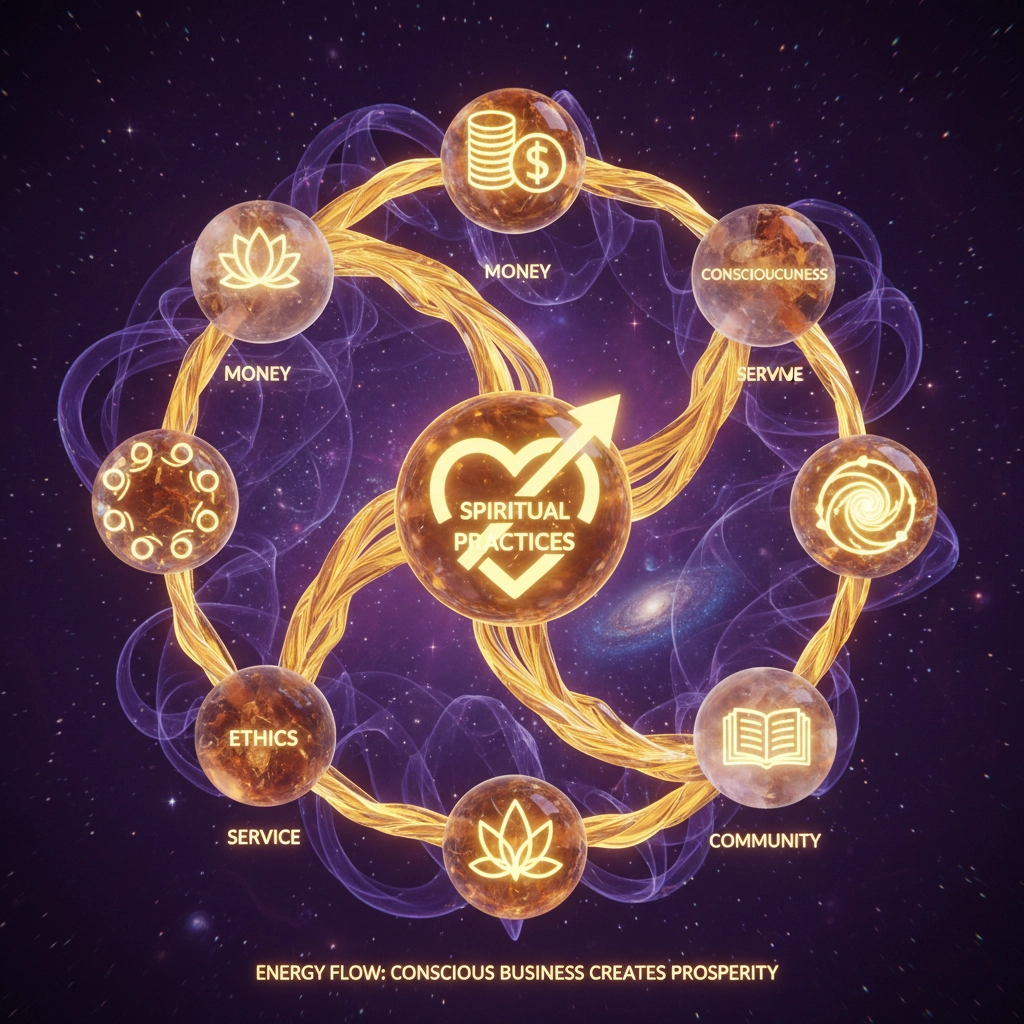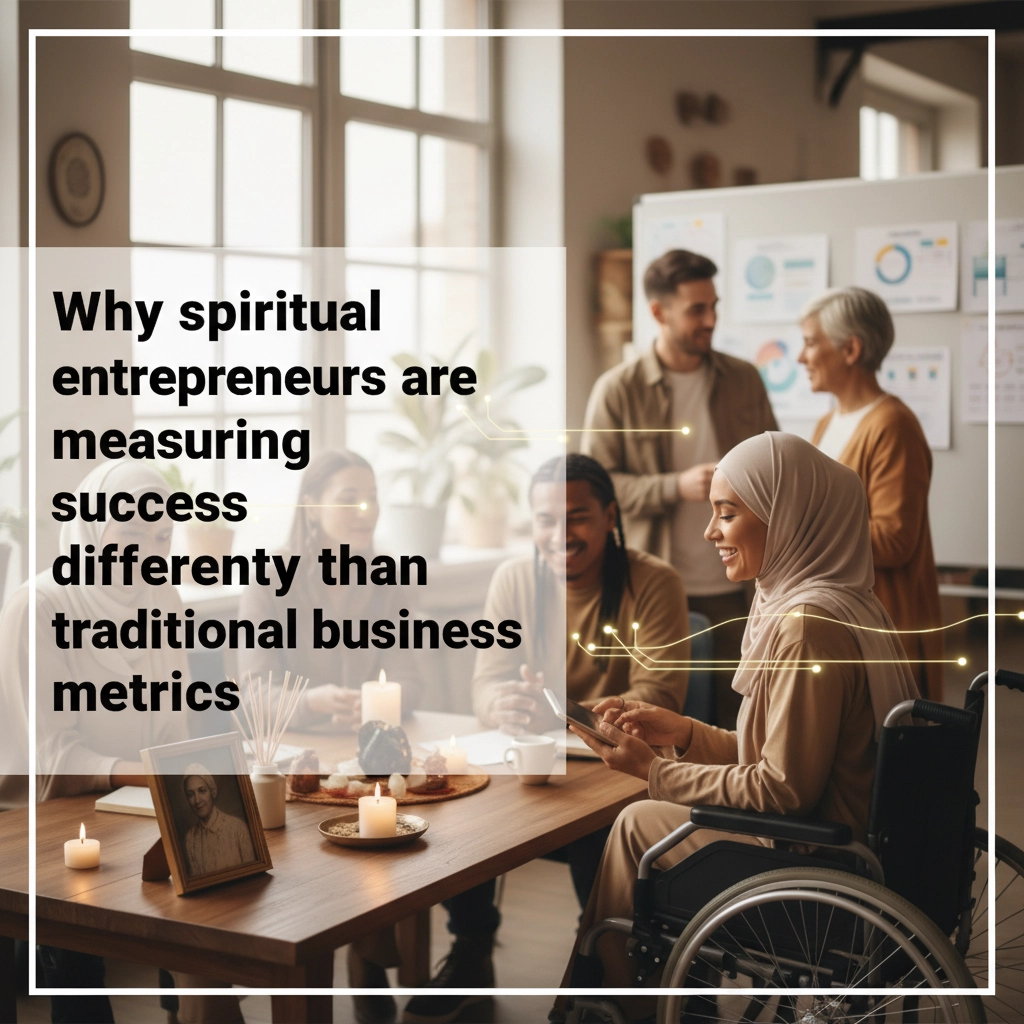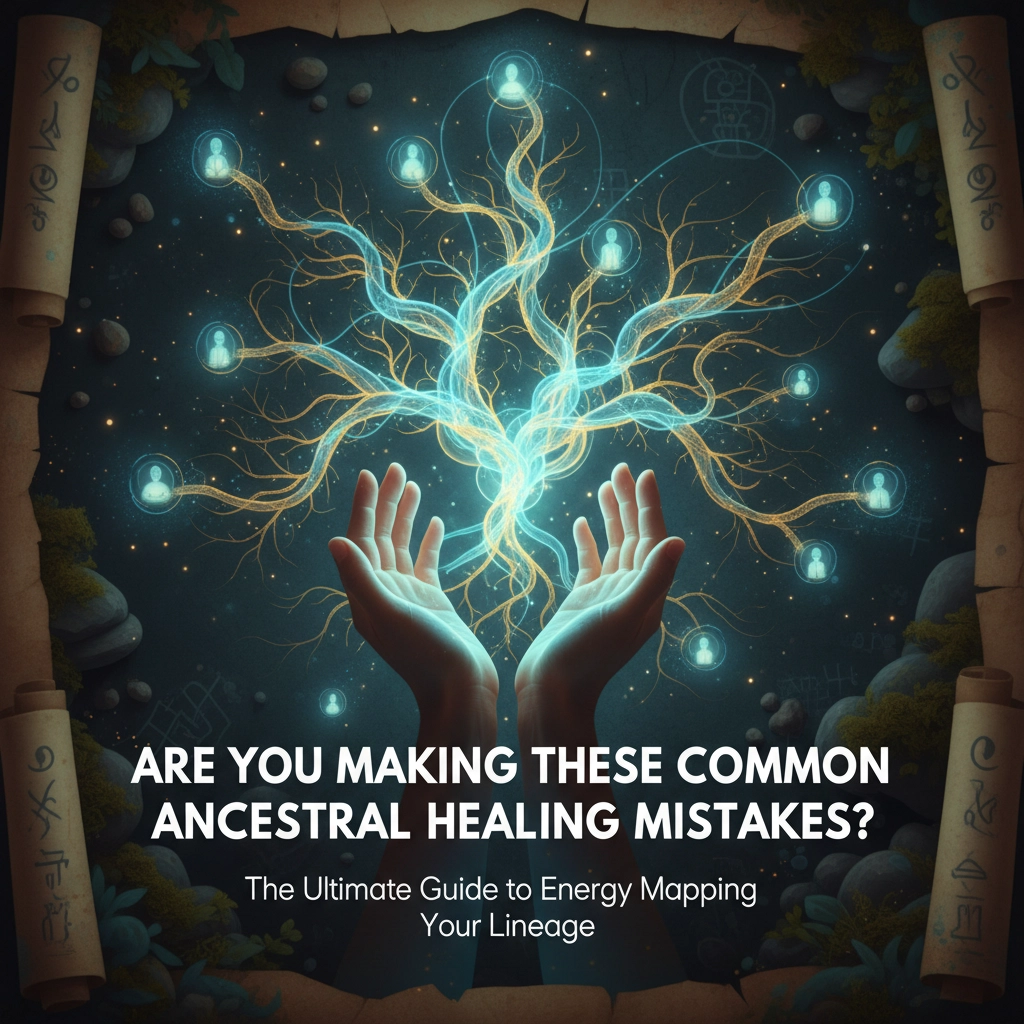Let me ask you something straight up: When was the last time you felt genuinely fulfilled after hitting a financial milestone? I'm talking about that deep, soul-level satisfaction that doesn't fade when the novelty wears off. If you're drawing a blank, you're not alone, and you're definitely not broken.
The spiritual entrepreneurship movement is flipping the script on what "making it" actually means. While traditional business owners are obsessing over profit margins and market share, spiritual entrepreneurs are asking completely different questions: "Am I aligned with my purpose?" "Are my clients actually transforming?" "Does this work feed my soul or drain it?"
This isn't some fluffy, feel-good rebellion against capitalism. This is a strategic reimagining of success that's creating more sustainable, fulfilling businesses, and entrepreneurs who don't burn out by 35.
The Problem with Traditional Metrics (And Why They're Failing You)
Here's the truth nobody wants to admit: Traditional business metrics are designed for extraction, not transformation. Revenue, profit margins, customer acquisition costs, these numbers tell you how efficiently you're taking from the market, but they say absolutely nothing about what you're giving back to the world.

You've probably felt this disconnect yourself. You hit your quarterly targets, your bank account looks healthy, but something feels off. You're successful on paper, but your spirit feels empty. Your ancestors didn't dream of freedom just so you could become another cog in a machine that prioritizes profit over people.
Traditional metrics also completely ignore the energetic cost of doing business. They don't account for the client who ghosted you after taking everything they could, the collaborator who left you drained and depleted, or the strategy that worked financially but went against every instinct your intuition was screaming at you.
What Spiritual Entrepreneurs Actually Track (And Why It Matters)
Spiritual entrepreneurs have learned to measure what matters. They're tracking client transformation stories instead of just conversion rates. They're monitoring their own energy levels and alignment, not just their hours worked. They're assessing community impact alongside individual profit.
Client Transformation Becomes Currency
Instead of just counting customers, you start tracking breakthroughs. How many people left your program feeling genuinely empowered? How many clients discovered their purpose through your work? How many are now living more authentic lives because of what you shared with them?
This isn't just warm and fuzzy idealism, it's smart business. Transformed clients become your most powerful marketing force. They refer others, they upgrade their services with you, and they stick around for the long haul. A single deeply transformed client is worth ten surface-level transactions.
Personal Fulfillment as a Success Metric
Here's where things get real: If you wake up dreading your work, you're failing, regardless of what your profit and loss statement says. Spiritual entrepreneurs track whether they feel excited about their work, whether their daily tasks align with their values, and whether their business is enhancing or detracting from their spiritual practice.

This means saying no to clients who drain your energy, even when they pay well. It means turning down opportunities that feel misaligned, even when they look good on paper. It means honoring your need for rest, ritual, and reflection as essential business practices.
Community Impact Over Individual Gain
Traditional business asks, "How much can I extract from my market?" Spiritual entrepreneurship asks, "How can my work contribute to collective healing and growth?" This shift changes everything about how you operate.
You start measuring whether your work is elevating your community. Are you creating more conscious leaders? Are you helping heal generational trauma? Are you contributing to a more just and equitable world? These questions become as important as "Are you making money?"
The Energetic Economics of Spiritual Business
Let me tell you something the business schools won't teach you: Everything is energy, including your money. The way you make your money affects the energy of your money. Money earned through depletion, manipulation, or misalignment carries that energy into your life.
Spiritual entrepreneurs understand this viscerally. They've learned that sustainable success requires maintaining energetic integrity in all their business dealings. This means:
- Pricing that honors both their value and their clients' capacity
- Business partnerships that feel genuinely reciprocal
- Marketing that attracts aligned clients rather than just anyone with money
- Systems that support their spiritual practice rather than competing with it

This isn't about being precious or avoiding the practical realities of business. It's about building a business that can actually sustain you long-term without requiring you to sacrifice your soul or your sanity.
The Holistic Dashboard: Tracking What Really Matters
Smart spiritual entrepreneurs create comprehensive success tracking systems that honor both practical and spiritual realities. They might track traditional metrics like revenue and expenses, but they're also monitoring:
- Energy levels and alignment scores
- Client satisfaction and transformation stories
- Team wellbeing and culture health
- Environmental and community impact
- Personal spiritual practice consistency
- Work-life integration quality
This holistic approach prevents the unconscious sacrifice of sustainability for short-term results. When you can see that your revenue is up but your energy is down, or that your profit margins are healthy but your team culture is toxic, you can make adjustments before hitting a wall.
Purpose as Your North Star (Not Profit)
Here's where spiritual entrepreneurship gets revolutionary: Purpose becomes the compass for all decision-making. Every opportunity gets filtered through the question, "Does this serve my mission or distract from it?"
This doesn't mean ignoring financial realities: it means understanding that financial success without purpose alignment is ultimately unsustainable. When your business becomes an expression of your deepest values and calling, work stops feeling like work and starts feeling like worship.

Your purpose becomes the foundation that everything else builds on. Marketing becomes sharing your truth. Sales becomes matching the right people with life-changing solutions. Customer service becomes holding space for transformation.
The Integration Challenge (And How to Navigate It)
Now, before you think you need to choose between spiritual fulfillment and financial success, let me be clear: The most successful spiritual entrepreneurs have learned to integrate both. They track traditional business metrics AND deeper impact measures. They build profitable businesses that also serve their souls.
The key is understanding that these different success measures aren't competing: they're complementary. When you're aligned with your purpose, energetically clear, and genuinely serving your community, financial success becomes a natural byproduct rather than something you have to chase.
Your Marching Orders: Redefining Success on Your Terms
It's time to get honest about what success actually means to you. Not what your parents think it should mean, not what society expects, not what your old business coach told you: what it means to YOU.
Start tracking what matters. Create a success dashboard that includes both practical metrics and soul metrics. Measure client transformation alongside conversion rates. Track your energy levels alongside your income levels. Monitor community impact alongside individual profit.
Stop apologizing for wanting both financial abundance AND spiritual fulfillment. The world needs conscious entrepreneurs who can model that integration is possible. Your ancestors didn't survive everything they survived just so you could settle for a successful business that makes you miserable.
Ask yourself: What would success look like if it honored every part of who you are? What would your business look like if it was designed to feed your soul while filling your bank account?
The spiritual entrepreneurship revolution isn't waiting for permission. It's happening now, with or without you. The question is: Are you ready to define success on your own terms, or are you going to keep measuring your worth by someone else's ruler?



